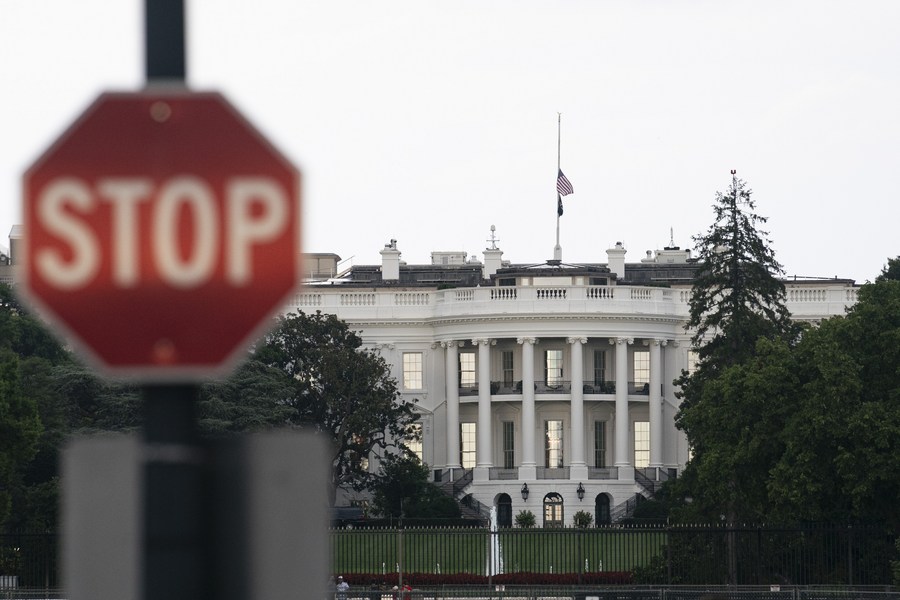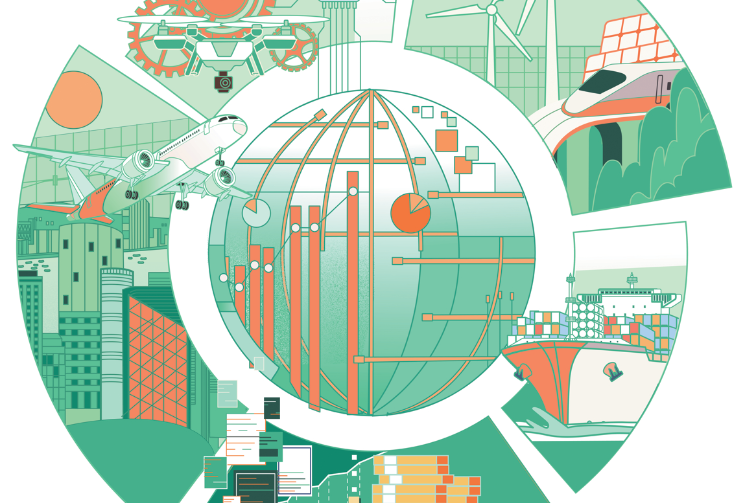US obstructing instead of driving global carbon emission reduction


On May 27, 2023, 27 Republicans in the US Senate, led by Shelley Moore Capito, called on the Biden administration to abandon its plan to cut vehicle emissions across the board and significantly increase electric vehicle sales by 2032. Earlier, Cathy McMorris Rodgers, the Energy and Commerce Committee chairwoman, together with 151 House Republicans also asked the US Environment Protection Agency to roll back emissions standards for light and medium vehicles and heavy trucks.
Back in 2017, the Trump administration decided to withdraw from the Paris Agreement. He argued that it could help revive public service by supporting the coal industry. To that end, he repealed environmental regulations that limited carbon emissions, loosened restraints on coal mining and coal-fired power plants, and provided substantial subsidies and incentives to the fossil fuel industry over a long period of time, including direct economic support, tax breaks and other incentives. As a result, the US returned to coal for production and life again, which obviously hindered the transformation. The administration also rolled back environmental regulations and protection policies, and rules on water pollution and mining had been further relaxed.
Trump's decision was met with opposition in the US. John Kerry, the former secretary of State and the negotiator of the Paris Agreement on behalf of the US, accused Trump of turning the US into an environmental outcast of the world. Former US president Barack Obama said sticking to the Paris Agreement would allow the participant parties to harvest new jobs opportunities from the new industry. He encouraged US states, cities and businesses to step up their efforts to "help future generations protect our only planet". Three governors of California, Washington and New York, 30 mayors, over 80 university presidents, and more than 100 business owners decided to do their part to protect the planet by complying with the Paris Agreement. Sixty-one cities, including Los Angeles, Chicago, Seattle and New York, issued a statement pledging to uphold the Paris Agreement, vowing to work to meet their current climate goals and increase investment in renewable energy and energy efficiency.
On his first day in office, Biden signed an executive order to return to the Paris Agreement and declared, "We are message to the world, America is back," But when it comes to meeting the climate targets, Congress will come up with all kinds of excuses to hold them back. Obviously, the US energy policy is only a tool to serve US national strategy. When environmental issues affect US economic interests, they are directly ignored. The US promises on energy conservation and emission reduction are always not in line with its actions, it even further dictates other countries to undertake the responsibility of global environmental development while ignoring its own.
At the summit meeting of the World Climate on April 22, 2021, the Biden administration made a solemn commitment to reduce US greenhouse gas emissions by 52 percent from 2005 levels by 2030, more than double the previous goal of the Obama administration. Bloomberg reported that greenhouse-gas emissions from the US energy sector are on track to reach their highest level in 30 years. According to the website of White House on August 5, the Biden administration has set a goal of 50 percent electric vehicle sales by 2030. According to a study by Canalys in February 2023, the US accounted for only 9 percent of global electric vehicle sales last year. The Chinese mainland is by far the largest market for new energy vehicles, with 59 percent of all new energy vehicle sales in 2022 coming from China, totaling 5.9 million units. Europe is the second largest market for NEVs, with 2.6 million units. The United States is lagging far behind, with just 920,000.
The US government is not only good at paying lip service to other countries, but also, more shamefully, hindering their efforts to cut carbon emissions. The United States used the Ukraine crisis to pressure European countries, forcing them to reduce their dependence on Russian natural gas, but increasing the export price of natural gas to Europe. As a result, Europe was forced to postpone their "coal removal" plan, resulting in increasing carbon dioxide emissions. Europe, once the global benchmark for carbon reduction, has been forced to return to coal power, a setback for global carbon neutrality. From day one of his administration, Biden stressed the need for the US to compete green with China on a global scale, to ensure that the US remains a global leader in clean energy manufacturing and low-carbon technology innovation. It has long viewed China as a key competitor. In a speech titled “The US competitiveness and the China challenge global economy of 21st century" US Commerce Secretary Gina M. Rainmondo said that the US’ goal is to "outcompete China to shape and lead the way."
In a recent interview, Christopher Hanson, chairman of the US Nuclear Regulatory Commission, directly warned Argentina about the risks and inconvenience of nuclear cooperation projects with China, urging Argentina to abandon cooperation with China and to cooperate with the United States. The US is reading too much into the ordinary technical co-operation between China and Argentina. Since June 2022, the US has launched a new round of crackdown on Chinese goods in the carbon neutral sector, forced seizure of Chinese solar panels more than 1,000 times. The US crackdown on the development of China's photovoltaic industry is aimed at curbing the development of new energy in China.
Deliberately vilifying other countries has become a common tactic of the US government. Speaking at the South by Southwest Conference, Jennifer Granholm, US energy secretary, urged the US to learn from China's current climate response. But the Republican Committee took to Twitter to hurl abuse at him, saying that "Energy Secretary Jennifer Granholm attempts to entice people to watch her speech by yelling about climate change," and accused China of using far more fossil fuels, and claimed the US is a real global contributor to environmental protection. Moreover, discrediting China's climate initiatives is a way to trick gullible Westerners into thinking that cooperation with China could be obtained through pressuring China. At the same time, the US is also trying to work with the European Union to formulate punitive measures against China by imposing additional tariffs on the Chinese steel industry under the pretext that China's steel production emissions are not carbon neutral as required. What the US needs is just loyal followers rather than equal allies. That’s why the US often denigrates European countries' achievements in sustainable development; overstating India's environmental problems; accusing the Brazilian government of irresponsibility for the Amazon rainforest.
The United States seems to be cooperating with the United Nations in energy conservation and emission reduction, but it actually considers its own interests. The US government has strongly encouraged the exploitation of shale gas. Although shale gas is a clean energy source, excessive exploitation of it can cause great damage to groundwater and geology. The growing presence of shale gas in the market is bound to bring down the cost of electricity generation, which is certainly helpful for manufacturing and economic recovery. It also could help the US overtake Russia as the biggest producer of natural gas. However, the excessive exploitation of shale gas will lead to the leakage of methane gas and produces a lot of greenhouse gases. According to the BP Statistical Review of World Energy 2020, the United States was already the world's leading oil and gas producer in 2019. Crude oil production reached 17.05 million barrels per day, accounting for 17.9 percent of global output, of which about 50-70 percent was shale oil. The US is trying to disrupt the global energy landscape by expanding its oil reserves through the shale oil and gas revolution.
Moreover, the US has been trying to rationalize its irresponsible conducts. In 2020, the Trump administration rescinded vehicle emissions and fuel consumption standards set by the Obama administration, claiming that the goal was to downgrade fuel efficiency standards to lower the cost of buying cars for consumers and make the roads safer. But the US people didn't buy it, saying in interviews that it actually raised the cost of buying a car. In contrast, since the oil crisis in the 1970s, Europe's energy structure has been constantly changing and adjusting. Under the dual challenges of increasing energy demand of the world and coping with climate change and promoting energy transformation, Europe still shows a positive determination and motivation for the goal.
There is no denying that the United States has made some contributions to reducing emissions, but they do not fit with its status as a great power, let alone its determination to protect the environment. On the contrary, the US actions reveal its selfish and willful nature. Under the great pressure of energy conservation and emission reduction, countries around the world are bound to sacrifice part of their economy, but the US still insists that its interests come first and goes its own way, refusing to honor its promises while accusing other countries of contributing too little.
As a superpower, the United States should shoulder more international responsibilities instead of standing against the world. We hope that the US can face up to global environmental issues, take effective and reasonable actions, abandon the excuse of political competition, and work with other countries with a pragmatic attitude and actions to control global temperature rise, protect the global ecology, and maintain the long-term and stable development of human society.
Han Aitong is a senior student of Chinese International Education at Dalian Minzu University and Guo Jiulin is a professor of American studies at the same university.


































